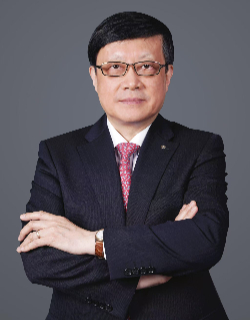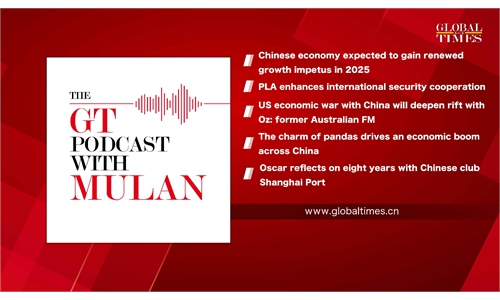
Consumer price index CPI Photo: CFP
The Political Bureau of the Communist Party of China (CPC) Central Committee on Monday held a meeting in Beijing to analyze and plan the economic work in 2025. The meeting underscored the need to vigorously boost domestic consumption, improve investment efficiency, and "expand domestic demand on all fronts."
The shift from "expanding home demand" to "expanding domestic demand on all fronts" was one of the most notable highlights of this agenda-setting meeting.
This new approach entails a comprehensive strategy, addressing areas such as raw material production and supply, technological innovation, participation by both state and private capital, population growth and talent development, and the creation of a unified national market.
The overarching aim is to enhance macroeconomic regulation and promote demand expansion throughout the entire economic landscape.
By 2025, aided by large-scale local government debt reductions and increased fiscal transfers from the central government, local governments are expected to overcome prior budgetary challenges.
New urbanization initiatives will present significant opportunities for investment in supporting infrastructure build-up. The market demand for cutting-edge information technologies such as artificial intelligence, cloud computing and the Internet of Things is poised to sustain strong growth.
The issuance of ultra-long special treasury bonds will further drive infrastructure investment in critical areas such as railways and water conservancy in China. Infrastructure investment is anticipated to grow at a rate of 5.5 percent in 2025.
Meanwhile, the drag from real estate investment on fixed asset growth is gradually diminishing. While long-term construction activity and new housing starts will likely continue to restrict real estate investment, years of deleveraging by developers are showing results.
Debt repayment pressures are expected to ease next year, with declines in funding sources likely to narrow by 50 percent. Overall risks in the sector remain manageable.
Demand for some traditional labor-intensive manufactured goods may face challenges due to factors such as weakening external demand and potential higher tariffs. This could lead to a reduction in manufacturing investment by private enterprises.
Fiscal and monetary policies will continue to provide robust support for key initiatives such as the "two majors" (major national strategies and security capacity building in critical areas) and the "two renewals" (large-scale equipment upgrades and replacement of old consumer goods with new ones).

Lian Ping Photo: Courtesy of Lian Ping
Investment in high-tech manufacturing is expected to maintain strong growth, providing robust endogenous support for manufacturing.
The growth rate of manufacturing investment is projected to ease slightly to around 6 percent in 2025.
Nationwide fixed asset investment is expected to grow by 3.5 to 4 percent in 2025. Capital formation is forecast to contribute 40 percent to GDP growth, an increase of 15 percentage points compared to 2024, driving GDP expansion by approximately 1.9 percentage points, up 0.7 percentage points from the previous year. This will play a critical role in bolstering the resilience of economic growth.
Additionally, lower mortgage rates on existing housing loans will save households roughly 150 billion yuan ($20.65 billion) annually in interest payments, providing more room for other consumer expenditures. Total retail sales of consumer goods are projected to grow by around 5.5 percent year-on-year in 2025, up 1.8 percentage points from 2024.
In summary, final consumption expenditure is forecast to contribute 70 percent to GDP growth in 2025, driving economic expansion by approximately 3.4 percentage points. This marks a 10-percentage-point rise in its contribution rate and a 0.4-percentage-point increase in its growth impact compared with 2024, further solidifying consumption's role as a key driver of economic growth.
The author is chief economist and head of the Zhixin Investment Research Institute. bizopinion@globaltimes.com.cn



